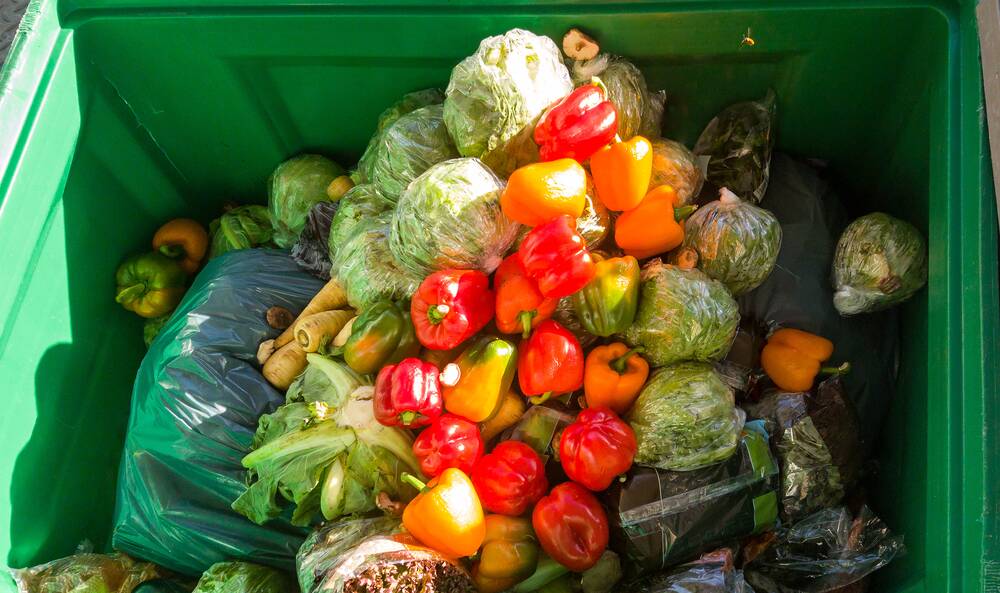Seven ways to reduce food waste

When we think about environmental issues, we tend to think about the big ones: like deforestation, the overfishing of the oceans, and climate change. But how often when discussing these topics around the dinner table do we stop to consider what is left on our plates?
Food waste is a major problem in Australia. According to the Department of Water, Agriculture and the Environment, we collectively waste around 7.3 million tonnes of food each year, which equates to roughly 300 kilograms per person.
This costs the Australian economy around $20 billion each year and accounts for more than five per cent of our greenhouse gas emissions.
However, Australia is not alone. One third of the world's food is wasted and is a major contributor to global greenhouse emissions. In fact, if food waste were a country, it would be the world's third largest emitter.
Luckily, there is something all of us can do about it. By simply being more conscious of our own behaviours, we can do our part to help tackle one of the most pressing environmental issues of our time.
Here are six ways you can reduce your food waste:
1 Don't buy too much to begin with
One of the main reasons we waste food is that we just buy too much of it to begin with.
When doing your weekly shop it is easy to switch onto autopilot, grabbing a bag of onions here and a kilo of carrots there.
But by the time next week rolls around, chances are you've probably got some green potatoes and a vegetable crisper full of veggies starting to turn.
That's why when you go to the supermarket, it is important to take a list and - even more importantly - know how much food you actually need for each meal, which brings us squarely to our next point...

2 Have a meal plan and stick to it
One of the easiest ways to avoid food waste is to actually have a plan when you go to the supermarket. This means planning meals for the next seven days and then only buying the food you need to cook it.
So, if you want to cook up a curry and you know it only takes two carrots, buy two carrots. If it requires 200g of chicken, buy 200g of chicken. Write down every recipe. That way you won't be wasting food.
Also, think about portion sizes and know how many the recipes serve, you're not cooking for an army afterall. If you do make too much however, it is important to...
3 Save your leftovers
Depending on what it is, leftovers are usually just as good the next day. In some cases, they can even be better.
If you leave a curry overnight, chances are the flavours will be more bold and pronounced when you heat them up tomorrow. Either way, there is no point in wasting perfectly good food.
4 Store food properly
Another important step in reducing food waste is to make sure you're storing food properly.
Make sure you know the difference between what fresh foods need to be refrigerated and which ones should be stored at room temperature.
Make sure your fridge is at the right temperature and freeze foods that can be frozen to extend their shelf life.

5 Don't let apathy and exhaustion be your enemy
When you have a meal plan, it is easy not to stick to it.
Being tired, having a bad day, just wanting to relax when you get home, they're all valid and common excuses to just avoid the kitchen for the night and instead grab some Thai food or swing by the drive thru on the way home.
But when you give in to this impulse after you've already bought food to cook it will lead to food waste.
So, it's important to stick to the meal plan you have created. Or, if you're realistic about your own habits, then only buy food to cook for four or five nights a week. Better yet, perhaps try doing some meal prep for the week. On Sunday night, why not whip up a couple of extra meals and freeze them?
And finally, in the words of Homer Simpson...
6 "Can't somebody else do it?"
If all of this seems like a bit too much to handle - and it sometimes it is for everyone - then why not consider a food box delivery service like HelloFresh?
Hello Fresh offers you the ability to tailor your meal plans, using many of their delicious recipes that cater for every palate and dietary requirement. Then, they deliver the fresh high quality and pre-portioned ingredients directly to your door as well as easy to follow, step-by-step recipes.
Not only does this save on food waste, it also saves time and money. Plus, HelloFresh is the first global carbon-neutral meal kit company, supporting both global and local environmentally-friendly projects.
This is branded content for HelloFresh.


